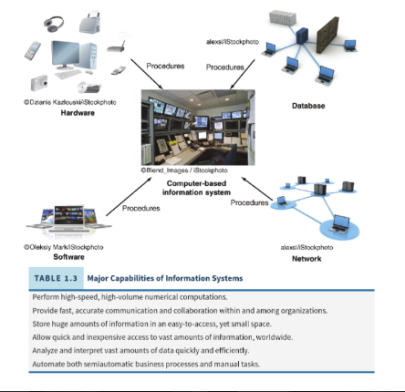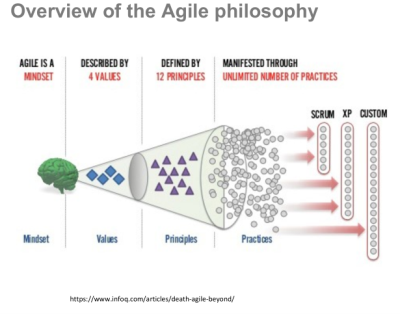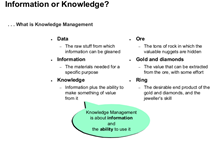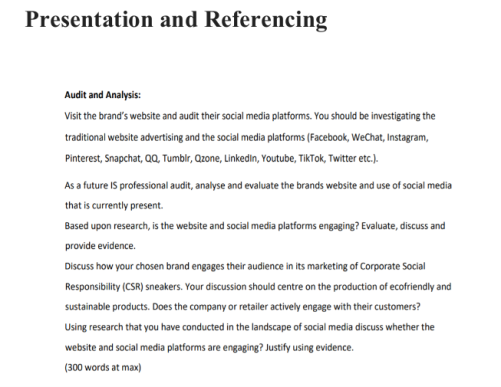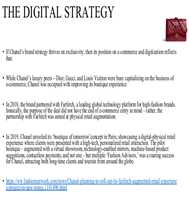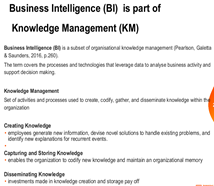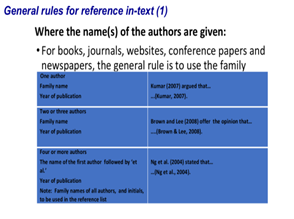Information Systems Assignment: Reflective Report on Personal Experiences
Question
Task:
Information Systems Assignment Task Instructions
- During Module 1 – 5, you were asking to produce a weekly journal to record your learnings each week. Based on these weekly journals, please write a 1500-word reflective report about your experience focussing on how this will support developing and planning your future career.
- You are required to follow the four steps of Kolb’s learning cycle when writing the reflective report.
Answer
Introduction
The reflective report prepared in this information systems assignment will focus on presenting an in-depth analysis of the weekly journals produced throughout the module. The report will incorporate Kolb's learning cycle to evaluate the knowledge gained from the experiences of learning. Kolb's learning cycle includes concrete experience, reflective observation, abstract conceptualisation, and active experimentation (Chiu, 2019). Concrete experience is gained through the weekly journal production. The report will focus on the reflective observation, which will summarise the entire experiences of the learning. The abstract conceptualisation will present the analysis of the personal experience and the opportunity for future career growth from the learning process. The active experimentation stage in Kolb's reflective learning will help develop actions that need to be taken for the future.
Application of Kolb’s Learning Cycle
Reflective Observation
The production of weekly journals has allowed me to learn from my experiences. Data quantity and automated operations management in an organisation are effective processes for information system management. I have gained an idea about the techniques to ensure proper access to data which may help to ensure better communication within users and systems. My observations have also captured some specific aspects like data quality management through active networks and capabilities of information systems to ensure data security. Network and data security are crucial aspects which are needed to be considered while operating information systems (Bantz, 2017). During week 2 journal writing, I understood how agile practices could help teams work with collaboration in a flexible work environment. The agile mindset and values promote operational efficiency in the work process (Geen, Goldman, & Jacobsson, 2020). I have gained the idea that principles of agile motivate teams to ensure operational efficiency in project management. However, I have also understood information and knowledge management while preparing journals regarding data integration and collection within information systems. I have gained the idea that knowledge management about data-gathering processes in organisations helps to create effective work progress and ensure effective skills within the workforce. For professional development, knowledge management is required. Scrum planning and business strategy management related to the audit and analysis process are essential. I have accumulated concepts about the business strategy and how the strategy can help to maintain corporate social responsibility. Through scrum methods, the software operations within organisations become easy and flexible.
Enterprise resource planning and customer relationship management are significant factors that I have used in the production of my week 5 journal. The case study of the Channel organisation had created a sufficient understanding regarding the digital strategy for business planning and management. Customer relationship management within the company Channel is possible due to its effective digital strategy, which helps the company interact with its customers through the digital network. Not only that, but I have also gained the idea that Channel has created a powerful ERP system to ensure proper customer relationship management. Enterprise resource planning is highly important for managing production and customer satisfaction (Katuu, 2020). As per my observations, Channel has created effective resource planning for ensuring operational efficiency through digital strategy management.
The concept of business intelligence, software, and system operations have helped me in forming a constructive knowledge about the data operations in organisations and the development of software through implementing the BI system. I have understood that business intelligence offers proper knowledge to the entities involved in organisations to create proper planning for software system development. The idea developed about agile and scrum will help me in my future professional care during operations and team management. Agile practices and implementation of scrum methods in organisations create flexibility in managing timely operations and achieving successful project outcomes.
Abstract Conceptualisation
The various information related to information systems, software, and data has helped me in gaining in-depth knowledge about information system management. The idea will help me in my future IT professional career. I can use my experiences from weekly journal writings to create better outcomes in team management and software operations. Capabilities development through knowledge management and information acquisition will be possible for me, which may help develop my analytical skills. Ideas regarding information communication systems and data quantity management have allowed me to explore effective communication management processes through incorporating software systems in organisations. Communication through an information system is effective in creating network operations in organisations (Park, 2018). The idea gained regarding agile ways of working will help me create a proper mindset for timely work accomplishment in the workplace. By implementing proper agile practices, the project works in the organisation can be managed forcibly. The scope for knowledge and information management may help me apply my knowledge in organisational data management in future employability through a proper security management process. I have understood the importance of data security which may help me ensure proper security to my personal information and organisational assets. Corporate social responsibility management is one of the crucial aspects of organisations (Daniel et al. 2019). Through developing an effective idea about the process of screen planning and business strategy implementation, I can develop the IS professional skills for managing software operations in organisations properly. However, the idea about enterprise resource planning and customer relationship management has created an understanding within me regarding the future customer relationship management during employability. I have also understood the importance of the ERP system in organisations. Software development using BI will be possible as I have used my understanding of business intelligence while developing the weekly journal. Practices of agile and scrum planning also show significant opportunities in managing future projects during my employability.
Active Experimentation
I need to develop my digital skills for managing data operations in information systems in my future employment. Capabilities for understanding the proper use of information systems in business planning and management are needed to be developed, which can be possible through gaining extensive knowledge about the concepts related to information systems such as data quantity management, data quality improvement, and data integration. I have also assessed that I need to develop a proper conception regarding agile ways of working. Team management capabilities require leadership skills (Solansky, & Mclver, 2018). I need to focus upon my leadership capabilities for ensuring proper team management by incorporating agile practices for team management. Apart from that, I also need to cultivate knowledge regarding agile values and agile project management approach so that my thinking capabilities can align with the agile mindset for future information systems or software development-related projects in organisations. Competencies based on knowledge and information can help me to understand the processes of data collection and evaluation within organisations.
I need to develop organisational skills for understanding the business strategies related to corporate social responsibility, which can be possible through acquiring ideas from experienced persons. IS professional skills development can be possible through aligning with the IT profession practices. I also need to develop ideas regarding enterprise resource planning and management. CRM is also a significant factor related to organisational development (Valmohammadi, 2017). I will engage in a continuous knowledge acquisition process regarding CRM and ERP, which may help me to take the responsibilities of ERP in future employability. However, the concept of BI can help me to develop a better understanding of the software development process. Business intelligence and knowledge management may help to create proper planning for data operations. I need to learn about the practices of agile and scrum methods through engaging myself in training and development activities so that the knowledge can help me in future team management processes.
Conclusion
The reflective report, through the discussion of reflective observation, abstract conceptualisation, and active experimentation, has created a practical understanding of the weekly journals' concepts and their implementation in a real-life context. The reflective observation has captured information systems, business strategy, ERP, CRM, CSR, software, and data. The multiple dimensions of learning have helped me in creating an accumulation of knowledge through gaining a diverse perspective of information system management and organisational business operations. The abstract conceptualisation has developed the idea about the future possibilities from the concepts evaluated in weekly journals. Moreover, active experimentation also helps in identifying the skills and competencies which are needed to develop for the future.
References
Bantz, D. (2017). Network and data security for non-engineers. Choice, 54(8), 1200–1201. https://lesa.on.worldcat.org/v2/oclc/7002836882
Chiu, S. K. (2019). Innovative experiential learning experience: pedagogical adopting kolb's learning cycle at higher education in hong kong. Cogent Education, 6(1). https://lesa.on.worldcat.org/v2/oclc/8839160039
Daniel, L. O., Alvarado-Pena, L. J., Sansores, G. E. A., & Navarrete, M. J. E. (2019). Corporate social responsibility: a typology of definitions. Information systems assignment Revista Venezolana De Gerencia, 24(85). https://lesa.on.worldcat.org/v2/oclc/8534576618
Gren, L., Goldman, A., & Jacobsson, C. (2020). Agile ways of working: a team maturity perspective. Journal of Software, 32(6). https://lesa.on.worldcat.org/v2/oclc/8674502111
Katuu, S. (2020). Enterprise resource planning: past, present, and future. New Review of Information Networking, 25(1), 37–46. https://lesa.on.worldcat.org/v2/oclc/8617325220
Park, R. C. (2018). Knowledge-based communication system. Wireless Personal Communications : An International Journal, 98(4), 3035–3038. https://lesa.on.worldcat.org/v2/oclc/7329462115
Solansky, S., & McIver, D. (2018). Team characteristics and leadership training participation. Team Performance Management, 24(3/4), 135–149. https://lesa.on.worldcat.org/v2/oclc/9052027865
Valmohammadi, C. (2017). Customer relationship management: innovation and performance. International Journal of Innovation Science, 9(4), 374–395. https://lesa.on.worldcat.org/v2/oclc/7259605369
Appendix: Concrete experience
|
Date |
Learning Activity |
Impact |
Evidence |
|
Week 1 |
Introduction to information systems |
Capabilities of information systems are identified concerning the data quantity and automated operations. Learned about easy access to information and communication processes. |
|
|
Week 2 |
Agile philosophy and mindset |
Gained knowledge about the values, mindset, and principles related to agile processes of project management are discussed. The principles for managing work operations are also discussed. |
|
|
Week 3 |
Knowledge of data and information |
Management of information through proper knowledge is addressed. Learned about the fact that knowledge management is about data collection and evaluation. |
|
|
Week 4 |
Business strategy and scrum planning |
Learned about Audit and analysis, which are effective business strategies. IS professional skills help in managing CSR. Scrum planning during business management is important. |
|
|
Week 5 |
Enterprise Resource Planning and Customer Relationship Management |
ERP and CRM activities concerning organisational development are essential. The digital strategy of an organisation helps to improve ERP and CRM. |
|
|
Week 6 |
Business Intelligence and software |
Knowledge gained about business intelligence and knowledge management concerning software and data operations in organisations. |
|
|
Week 8 |
Referencing |
Referencing with in-texting in proper format and also to know the style to reference a particular secondary source within an assignment. |
|

